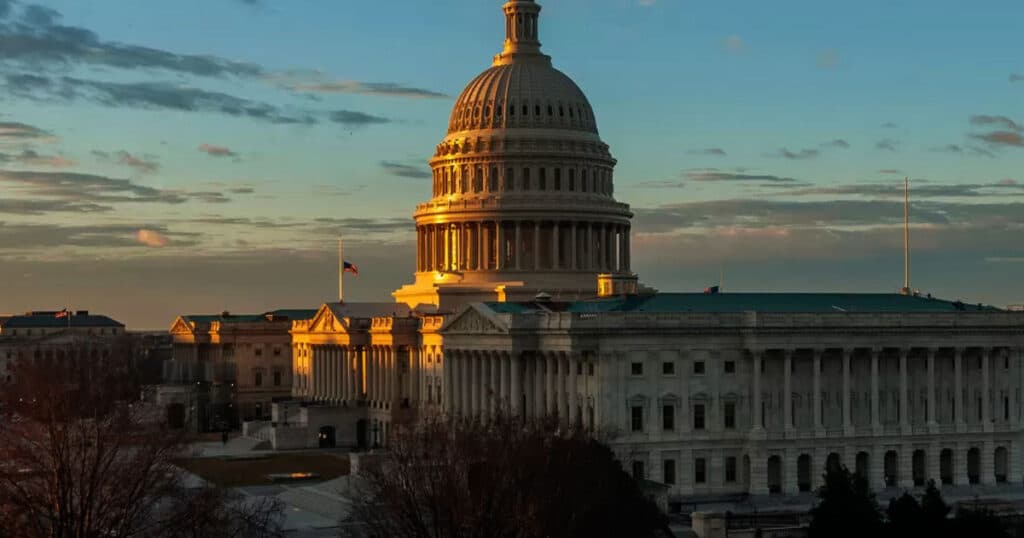A Clear Threat to Freedom: Foundations and Charities Raise Their Voices Against H.R. 9495

A bill moving through Congress would give the executive branch sweeping new powers to target domestic political opponents. H.R. 9495, which passed the U.S. House of Representatives last week, now heads to the Senate. Those new powers, paired in the bill with an unrelated measure to provide tax relief for hostages held abroad, would threaten non-profit organizations’ 501(c)(3) charitable status based on the arbitrary decisions of the Treasury Secretary. As the Guardian reported:
The bill, which gives the treasury the power to strip non-profits it claims support “terrorism” of their tax-exempt status, does not require the treasury to adhere to any evidentiary standard in releasing its findings. Although groups targeted could appeal to the IRS or the courts for review, simply being identified as a supporter of terrorism could have a chilling effect on advocacy groups, critics warn.
Such a clear threat to civil rights and freedoms has prompted widespread opposition to the bill, including from many organizations that usually do not weigh in on legislation.
In a joint statement by the Council on Foundations, Independent Sector, National Council of Nonprofits, and United Philanthropy Forum, they warn:
This legislation would allow the Secretary of the Treasury to designate section 501(c) nonprofits as “terrorist supporting organizations” at the Secretary’s discretion, without requiring the Secretary to share their full evidence or reasoning with accused nonprofits. Furthermore, the legislation runs counter to constitutional due process protections by placing the burden of proof on the accused organization and providing only 90 days for organizations to demonstrate their innocence before revoking their tax-exempt status.
Even if the Secretary’s decision were successfully reversed, designees would risk irreparable damage to their operations and reputation. The implication that an organization could be associated with terrorism could cause it to lose not only access to banks and other financial institutions but also the trust of donors and the communities it serves. In the end, the beneficiaries of nonprofits’ work would suffer the most.
The Greater New Orleans Funders Network (GNOFN) called on lawmakers to defeat the bill before it becomes law:
While cloaked in the language of national security, this bill would grant unprecedented and unchecked power to the Secretary of the Treasury to target nonprofit organizations under the guise of combating terrorism—silencing civil society, undermining free speech, and threatening the vital work of organizations serving our communities.
Oxfam America President and CEO Abby Maxman raised the alarm at the potential for abuse in this legislation, noting similar overreaches in other countries:
As a leader in the humanitarian community, I am gravely concerned that the House of Representatives today passed a bill that threatens free speech, crushes dissent, and gives the incoming Trump administration, and any future administration, the ability to shut down non-profits that dare to freely express an opinion. We have seen bills like this in other countries, and we know what they do: silence criticism and put lifesaving humanitarian operations like Oxfam’s at risk.
Amnesty International has similarly objected to the legislation:
“In any other context, this legislation would be seen for what it is, a play from the authoritarian leader’s playbook,” said Paul O’Brien, Executive Director at Amnesty International USA.
The broad and vague authority to terminate non-profit status in the name of “counterterrorism” is a practice that many governments have used to target civil society organizations. There are no safeguards to prevent H.R. 9495’s broad authority from being misused to harass or intimidate organizations for exercising their rights.
In a joint letter by multiple civil rights organizations including the NAACP, Legal Defense Fund, and National Urban League, they make clear the potential for harm against racial justice groups, given the history of federal law enforcement:
We are deeply concerned that the authorities granted in H.R. 9495 would be abused to target racial justice organizations and protestors, which have long been targets of biased criminal and terrorism investigations. The federal government has targeted leaders in the civil rights movement for decades, dating back to the surveillance of Dr. Martin Luther King, Jr. and several other civil rights leaders and organizations by federal intelligence agencies.
Such abusive targeting continues to this day. In 2017, just nine days before the deadly white supremacist rally in Charlottesville, the Federal Bureau of Investigation named “Black identity extremists” a growing violent threat and used the designation to target Black Lives Matter groups and other political activists. Department of Homeland Security intelligence reports similarly claimed without evidence that “domestic violent extremists”—the agency’s term for domestic terrorists — were attempting to “exploit” racial justice protests. Most recently, the Department of Homeland Security inappropriately described groups opposed to Cop City in Atlanta, GA, as alleged domestic violent extremists, contributing to the arrests of protestors, a legal observer, and three operators of a nonprofit bail fund by Georgia law enforcement authorities. H.R. 9495 would give the federal government additional tools to target civil rights leaders, racial justice activists, and protestors not because of legitimate national security or law enforcement interests but because the administration disagrees with their positions and goals.
Other organizations and coalitions have raised their voices against H.R. 9495, including the ACLU, CAIR, and Religious Action Center for Reform Judaism.


